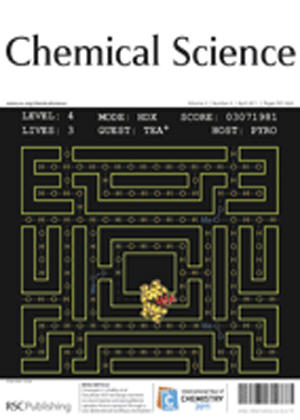151
Gas-phase H/D-exchange reactions on resorcinarene and pyrogallarene capsules: Proton transport through a one-dimensional Grotthuss mechanism
H. D. F. Winkler, E. V. Dzyuba, J. A. W. Sklorz, N. K. Beyeh, K. Rissanen, C. A. Schalley – 2011
Hydrogen/deuterium exchange (HDX) experiments can be used to examine the gas-phase structure of hydrogen-bonded dimeric resorcinarene and pyrogallarene capsules. Already the qualitative comparison of the isotope exchange rates of different host–guest complexes with Cs+, tetramethyl ammonium (TMA+) and tetraethyl ammonium (TEA+) as the guest cations provides insight into the H/D-exchange mechanisms and with it, into the capsules' gas-phase ion structures. The smaller Cs+ cations bind inside dimeric capsules with an intact seam of hydrogen bonds between the two monomers. Larger cations such as TEA+ lead to capsules with partially disrupted seams of hydrogen bonds. A fast isotope exchange is only observed, when the H-bonding seam between the two monomers is intact. In these cases, the H/D-exchange proceeds by a concerted mechanism reminiscent of the Grotthuss mechanism of proton transfer through water. Since it can only proceed along the seam, we refer to this exchange mechanism as a one dimensional Grotthuss mechanism.
Gas-phase H/D-exchange reactions on resorcinarene and pyrogallarene capsules: Proton transport through a one-dimensional Grotthuss mechanism

